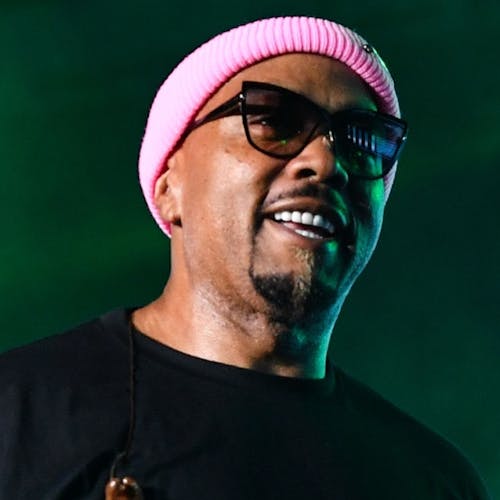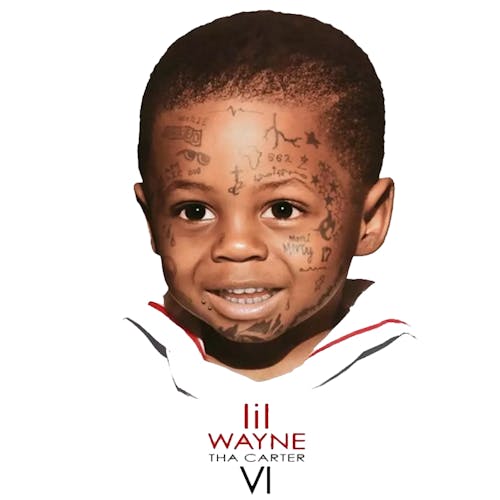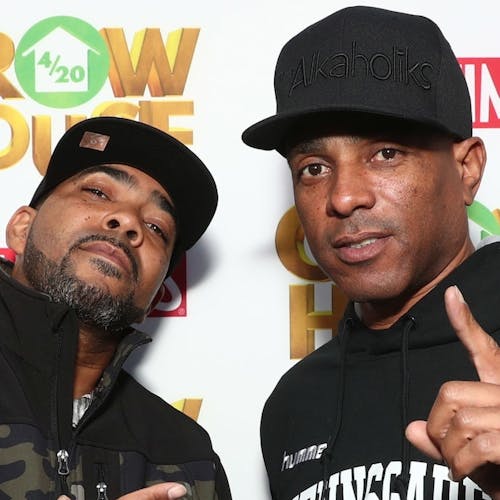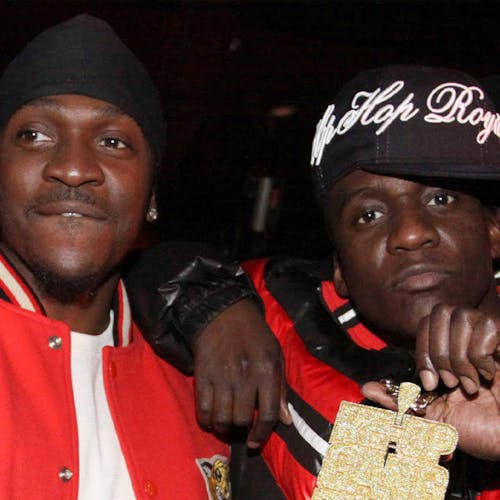
RBX: The Narrator Preps First Solo Album In 15 Years
RBX: The Narrator Preps First Solo Album In 15 Years
By Kyle Eustice
Published Thu, August 24, 2023 at 4:30 PM EDT
Depression had RBX in its grips.
The Long Beach native (real name Eric Collins), who famously contributed to multiple songs on Dr. Dre’s seminal album, The Chronic, had watched several of his loved ones die and was struggling to crawl out from the heaviness of grief. But, as he puts it, he still had “a drive and love” for hip-hop.
“I had so much luggage that the plane didn't really take off, and so we just had to unload some of that luggage,” he tells Rock The Bells. “I went through a couple deaths, including my girl, my grandmother and about 100 of the homies—I was just bogged down and moving like a snail.”
It took two Los Angeles producers—Sccit & Siavash The Grouch—to slowly coax RBX out of his creative slump. But once they did, RBX began furiously putting pen to paper and wound up with a new album, Hibernation Shivers, his first solo album since 2007’s Broken Silence.
As he explains, “They said, ‘How about we work you out this depression and we just do one song?’ Then a couple months went by and they say, ‘RBX, you wanna do another song?’ I said, ‘Not really, but let’s see what it do.’ Then I started slowly coming out of my funk and started getting back into it.”
In a way, music has always provided a lifeline for RBX. In the early 1990s, his work with Dr. Dre put him on another path, one that could’ve been littered with darkness. Like most young Black men growing up in Long Beach, RBX found his options for financial stability to be rather limited. He started hustling at a young age (“petty crimes,” he says) and was running rampant in the streets. In 1991, RBX was hanging around his cousins Snoop Dogg and Daz Dillinger when he was introduced to Dr. Dre, who by that time had already made a name for himself as a founding member of N.W.A.
As the story goes, RBX was at the studio with Snoop when Dr. Dre overheard them talking. Intrigued by RBX’s deep, booming voice, Dre popped his head in and asked if he could rap. Out of respect for Snoop, he let him do the talking.
“I wasn’t trying to outshine Snoop with my shit,” he says. “That was his opportunity.” But before he knew it, Snoop replied, “Yeah, he can get down.” RBX ended up signing with Death Row Records in 1992 and contributing to six songs on The Chronic, including “Lyrical Gangbang” and “High Powered.”
“Music definitely saved my life,” he says, confidently. “That's why when cats be like, ‘You some old heads,’ it’s irrelevant. It’s the music. It’s not about what they think or what the charts think. At the end of the day, those that really do know it’s a soul thing. It’s soul healing.”
RBX never envisioned the success The Chronic would have—nobody did. The album peaked at No. 3 on the Billboard 200 and No. 1 on the Top R&B/Hip-Hop Albums charts. As of 2015, it’s sold nearly six million copies in the United States alone. But beyond its commercial success, The Chronic helped usher in the G-Funk era and forever changed rap’s landscape.
RBX, who also contributed to Snoop Dogg’s breakout solo album, Doggystyle, in 1993, started becoming disillusioned by the music business fairly quickly, and his stint at Death Row proved to be short-lived. In 1994, RBX left the label and signed with Premeditated Records, where he released his debut solo album, The RBX Files, a year later.
DROP YOUR EMAIL
TO STAY IN THE KNOW

“Dre just called me and told me he needs me to help on his new artists’ album and I was there.”
The album blatantly abandoned the West Coast G-Funk style in favor of a "gritty, dungeon-like" sound more associated with East Coast rap. The verbally vicious single "A.W.O.L." made it clear how fed up he was with former Death Row CEO Suge Knight and the rest of the Death Row label.
“I just wanted to do the music,” he says. “I’m kind of like a real musician. You can't box me in and you can't peg me down for ‘murder, murder, kill, kill, kill’ all the time. No. I go ‘murder murder, kill, kill, kill’ when I'm on a song like that, but I also might do something on the rock side of things. I might do something on the EDM side of things. At the same time, when I do do it, it’s always me. It’s never me trying to be somebody else or compromise myself.
He adds, “I love The Chronic. I love everything that we've done on it. I ain’t knockin’ it or nothing, but I’m more than that. People need to know that.”
But there’s no longer any bad blood between RBX and Dr. Dre. In fact, RBX re-united with Dr. Dre as one of the first artists on Aftermath Entertainment, appearing on Eminem’s classic, The Marshall Mathers LP.
“I didn’t even know what the song was really for,” RBX said. “Dre just called me and told me he needs me to help on his new artists’ album and I was there.”

“At this point in the game, if we don’t each one, teach one, what are we doing?”
While RBX is proud of the work he did with Dr. Dre, it’s time for him to re-establish his own legacy. Hibernation Shivers is expected to arrive in November. The title—named after a condition a bear experiences when emerging from hibernation— perfectly sums up RBX’s latest chapter. The project feature appearances by Spice 1, MC Eiht, Daz Dillinger, Fatlip, Project Pat, Eligh, Cold 187um, Krayzie Bone, Butch Cassidy and Smoov-E, among others. The first single, “Nightstalker” featuring Krayzie Bone, dropped in July and proved RBX is just as hungry as ever—but he also has a higher purpose.
“At this point in the game, if we don’t each one, teach one, what are we doing?” he says. “Everything we do gotta make sense. We too grown to be mythical. I don’t have time for that. I went back in and did my research, and I was like we gonna call it Hibernation Shivers because we representing that Grizzly bear, that Cali bear. And I’ve kinda been hibernating in my den, but when I come out—I might be a little small and thin—however, my teeth are going to be real sharp and everybody can get it. I’m gonna cook everybody.”



